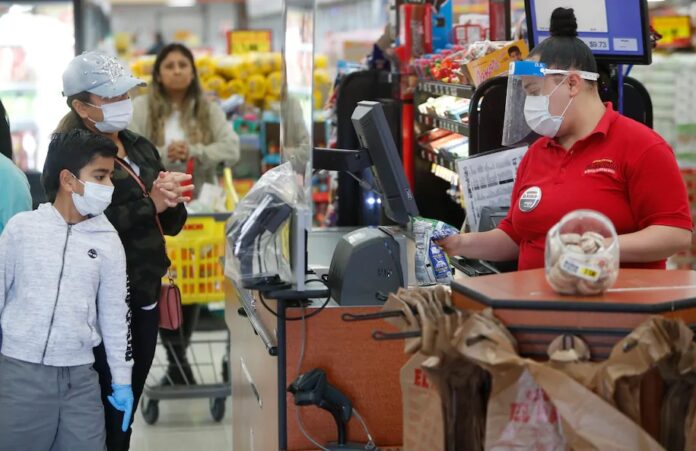By William J. Barber II and Joe Kennedy III
A month ago, they were called “service workers”: the people who prepare our food, deliver our packages, drive our buses, clean our offices and staff our nursing homes. Then, the coronavirus changed this country’s collective vocabulary. Now, these people are “essential workers.” They may not be paid a livable wage or have access to dependable health care. They may even be forced onto public assistance.
And the rest of us cannot survive without them.
Their sacrifice and their service are a moral calling for all of us: It is past time for federal policy to acknowledge what is unequivocally essential for any man, woman or child to survive.
Food is essential. Depending on which definition of the term you use, between 17 million and 54 million Americans live in food deserts. Millions of immigrants are denied basic nutrition because they do not qualify for the Supplemental Nutrition Assistance Program. Moms and children lucky enough to be covered by the Special Supplemental Nutrition Program for Women, Infants and Children (WIC) now must search for vital items in picked-over grocery stores.
Shelter is essential. On any given night, half a million Americans sleep on the streets. Another 3 million live in shelters at some point each year. And there is not a county in the country where someone earning minimum wage can afford to rent a two-bedroom apartment.
Health care is essential. The people contracting and dying from this disease are disproportionately poor and black and brown. Millions of Americans are losing their jobs, and with those jobs, their health insurance; tying coverage to employment has always been foolish, but in a pandemic that requires us to shut down our economy in response, it is madness.
Financial security is essential. Many Americans have continued going to work because they have to. We need hazard pay for these essential workers. We need a living wage for all. We need guaranteed sick days, paid family leave, universal child care and public transit worthy of the most powerful country in the developed world.
Clean air and clean water are essential. As a respiratory illness tears through our communities, some people are shocked that it is having a disparate impact on communities of color. Communities of color and low-income workers were battling a natural disaster, often without help from their governments, long before covid-19 arrived.
Belonging is essential. While a one-time relief check from the federal government is good news to tens of millions of Americans, we know that 11 million of our undocumented neighbors will not receive anything from the federal aid that has been allocated thus far. Many are agricultural and construction workers, deemed essential, who have paid taxes in the United States for decades. But still we shamelessly exploit their labor. We need justice for immigrant workers, families and communities.
If these workers are essential, then their lives are, too. Their humanity is, too. If there is anything covid-19 has revealed, it is how deeply our fates are tied.
Barber, W. J. & Kennedy, J. (2020, April 27). The pandemic changed our definition of ‘essential.’ Will we act on what we learned?. The Washington Post. https://www.washingtonpost.com/opinions/2020/04/27/pandemic-changed-our-definition-essential-will-we-act-what-we-learned/
Analysis-
It was especially evident during the months of March, April, and May as businesses, schools, and many establishments closed that those who deliver packages, sanitize the streets, drive buses and work in hospitals are essential to the economy and our daily lives. However, most of these workers, now deemed “essential workers,” are underpaid, undervalued and minorities. Despite being the ones who provide us with the essentials like food and transportation, most of them do not have access to some of these essentials.
This article lists the essentials for all people: Food, shelter, health care, financial security, clean air and clean water, and a sense of belonging. However due to certain policies not all people have access to these basic needs and a lot of these people are essential workers.
This article took an interesting approach at addressing the needs of all people and how essential workers’ lives matter. This article will aid in my research as I try to find problems that essential workers face.




